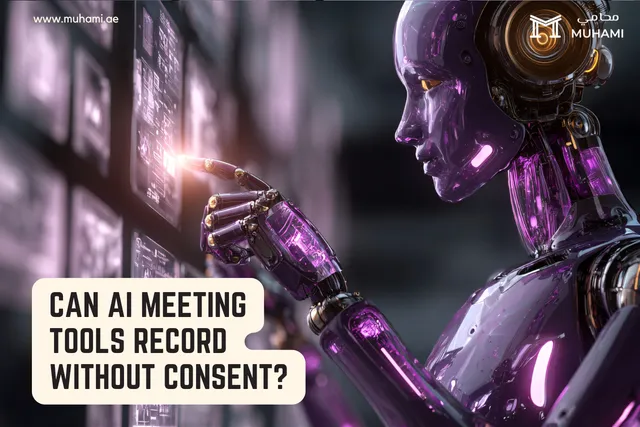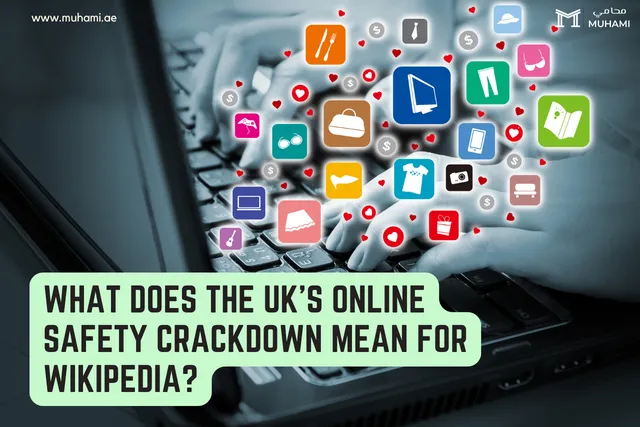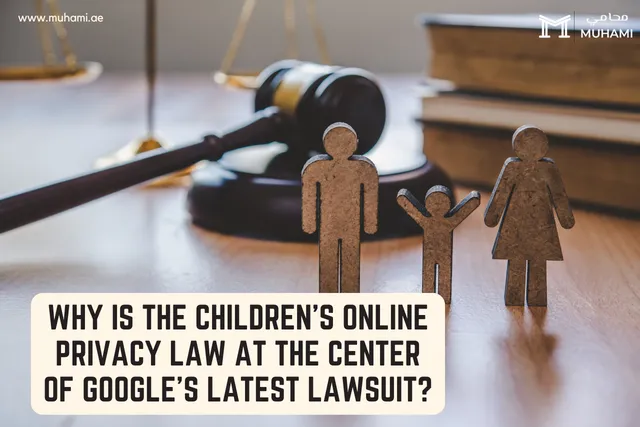Can AI Meeting Tools Record Without Consent?

Smart devices, such as voice assistants, fitness trackers and AI-powered meeting software, offer unprecedented convenience and personalized experiences. However, they come with a trade-off: our personal data.
Many consumers accept this exchange without fully understanding what information is being collected or how it is used, but others have begun to question the privacy implications. This concern has led to a growing number of lawsuits against companies that collect sensitive personal information through everyday devices.
The latest case involves Otter.ai, which on August 16, 2025, faced a federal class action lawsuit in California. The suit alleges that Otter’s transcription service recorded private conversations without consent, potentially violating federal wiretapping laws and California’s privacy statutes.
BACKGROUND AND TECHNOLOGY
Otter.ai, founded in 2016 as AISense and headquartered in Mountain View, California, has grown to serve over 25 million users worldwide with its AI-powered transcription services. The company's Otter Notebook technology provides real-time transcription capabilities for virtual meetings conducted on platforms including Zoom, Google Meet, and Microsoft Teams.
The plaintiff, Justin Brewer, who does not possess an Otter account, participated in a Zoom meeting in February 2025 where Otter Notetaker was utiliSed. The lawsuit states that Brewer was unaware that Otter would access and retain that information and was not informed that the service would utilize this data for the training of its speech recognition and machine learning technologies.
CORE ALLEGATIONS AND LEGAL CLAIMS
Brewer alleges that his privacy was severely violated upon discovering the unauthorized recording. The lawsuit centres on several key allegations regarding Otter.ai's data collection practices as below:
1. Unauthorized Recording Practices: Otter Notetaker joins meetings without obtaining explicit consent from all participants, particularly when an Otter account holder has integrated their meeting platforms with the service.
2. Data Processing for AI Training: Otter.ai uses recorded conversations to train its AI systems for financial benefit, despite participants being unaware of this practice. While Otter's privacy policy states that it obtains "explicit permission" from users, the lawsuit argues that many users remain uninformed about this practice.
3. Inadequate Consent Mechanisms: The lawsuit challenges Otter's assertion that it adequately discloses its recording practices, arguing that the service does not obtain prior consent, express or otherwise, of persons who attend meetings where the Otter Notetaker is enabled.
CURRENT STATUS
The case seeks class action certification under Rule 23 of the Federal Rules of Civil Procedure to represent both a nationwide class and a California subclass of individuals whose conversations were intercepted without their knowledge.
The plaintiffs pursue claims under the Electronic Communications Privacy Act (18 U.S.C. § 2510 et seq.), the California Invasion of Privacy Act (Cal. Penal Code §§ 631–632), and other federal and state privacy laws. They
seek statutory and punitive damages, injunctive relief to delete unlawfully obtained data, and restitution of profits.
A PATTERN OF UNAUTHORISED RECORDING
The Otter.ai lawsuit represents the latest chapter in a recurring pattern of legal challenges against technology companies for unauthorized recording practices.
Garner v. Amazon
In June 2021, Kaeli Garner filed a lawsuit in the U.S. District Court for the Western District of Washington alleging that Amazon's Alexa voice assistant illegally intercepted and stored billions of private conversations without proper disclosure or consent.
U.S. District Judge Robert Lasnik granted class certification to the action in July 2025, finding that millions of registered Alexa users had similar enough claims to proceed together. In 2023, Amazon entered into a settlement with the FTC arising from similar claims, as described below.
FTC v. Amazon
In May 2023, the FTC charged Amazon with violating the Children's Online Privacy Protection Act by retaining voice recordings of children made via Alexa devices indefinitely, even after parents requested deletion.
According to the FTC complaint, Amazon's Alexa Kids profiles collected audio data without adequate parental notice or consent, exposing sensitive information about children's activities and routines. Amazon agreed to a $25 million settlement, under which it also had to purge all recorded audio of users under 13 and implement new parental notice mechanisms.
The settlement also requires Amazon to establish a comprehensive privacy program subject to independent audits for the next 20 years, ensuring that children's voice data is not retained without affirmative permission.
Brown v. Google LLC (Chrome "Incognito" Mode)
Brown v. Google LLC, settled in April 2024 in the Northern District of California, addressed allegations that Google's Chrome browser tracked users' web activity even when browsing privately under "Incognito" mode.
Plaintiffs argued that Google harvested search history and site visit data through embedded tracking scripts, contradicting its user-facing description of Incognito as non-tracking. Google agreed to destroy billions of records previously collected in Incognito sessions, update its privacy disclosures to prominently warn users that certain data collection would continue, and implement technical changes limiting tracking during private browsing.
In re Clearview AI Consumer Privacy Litigation
In March 2025, U.S. District Judge Sharon Johnson Coleman approved a $51.75 million settlement in Clearview AI's biometric privacy class action in the Northern District of Illinois.
Plaintiffs alleged that Clearview harvested more than three billion facial images from social media and other online sources without individuals' consent, violating the Illinois Biometric Information Privacy Act.
The settlement grants class members a 23 percent equity stake in Clearview AI, valued relative to any future initial public offering or acquisition, and Clearview also agreed to delete all biometric data collected before January 2023 and cease further scraping of the public internet for facial images.
FTC v. Ring LLC
In May 2023, Ring LLC, a subsidiary of Amazon.com, settled FTC charges that its employees and authorized contractors had unrestricted access to users’ private video recordings, often capturing intimate areas such as bathrooms and bedrooms, between 2017 and 2020.
According to the FTC's administrative complaint, several Ring employees viewed, downloaded, and shared video footage for personal purposes.
Ring agreed to pay a $5.8 million civil penalty, notify all users of employee access practices, require multi-factor authentication for all employee and contractor accounts, and submit to biennial privacy audits to ensure compliance with data access safeguards. These cases underline the rising importance of compliance for any technology law firm advising clients on AI, data privacy, and user consent.
CONCLUSION
The Otter.ai lawsuit highlights key legal principles that technology companies must follow as courts increase oversight of data collection for AI training.
First, consent must be specific and informed. Courts now reject vague privacy policies in favour of clear, purpose-limited authorisation requirements. Second, transparency must replace opacity. Companies must design consent frameworks that explain in simple terms how each category of data will be used. Users should be able to grant or withhold permission for each distinct purpose and privacy controls must function intuitively, not merely technically.
Finally, courts are moving from enforcing financial remedies to demanding behavioural changes. Settlements now include independent privacy audits, data deletion requirements and mandatory revisions of consent mechanisms. As these developments unfold, the role of an AI Law Firm becomes increasingly crucial in shaping compliance strategies and safeguarding consumer rights.
Any Questions?
Connect with lawyers and seek expert legal advice
Share
Find by Article Category
Browse articles by categories
Featured Partnership
She Knows Best
Anonymous Advice, For Women By Women
Related Articles

What Does the UK’s Online Safety Crackd…
The U.K.'s Online Safety Act (OSA) has faced significant criticism for its …

What Does the UK’s Online Safety Crackdown Mean f…
The U.K.'s Online Safety Act (OSA) has faced …

How to Spot Burnout Before It Becomes a…
Burnout rarely happens overnight. It builds slowly, often silently, which makes…

How to Spot Burnout Before It Becomes a Resignati…
Burnout rarely happens overnight. It builds slowl…

Why Is the Children’s Online Privacy La…
On August 19 2025, Google agreed to pay $30 million in a preliminary settlement…

Why Is the Children’s Online Privacy Law at the C…
On August 19 2025, Google agreed to pay $30 milli…
